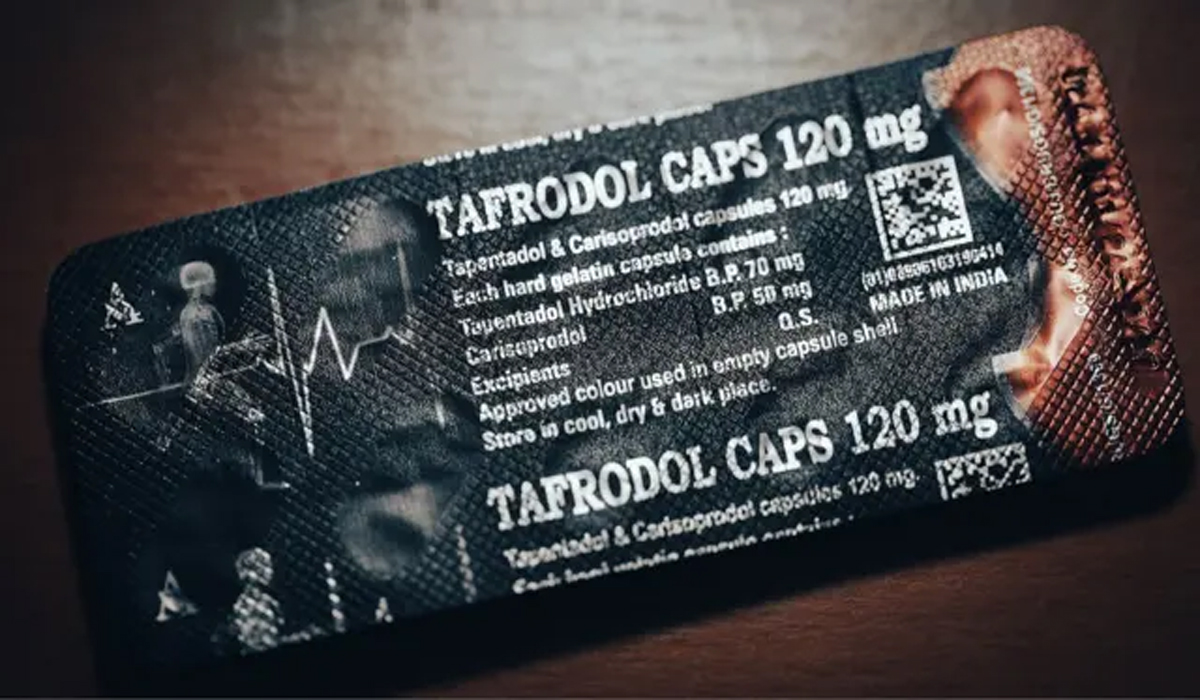
New Delhi: Aveo Pharmaceuticals, an Indian pharmaceutical company, is allegedly manufacturing unlicensed and highly addictive opioids, which are illegally being exported to West Africa, precipitating a public health crisis.
India’s Opioid Kings, a new documentary from the BBC World Service’s award-winning BBC Eye Investigations team, has revealed that an Indian pharmaceutical company is manufacturing unlicensed, addictive opioids and exporting them illegally to West Africa where they are driving a major public health crisis.
The drugs are being packaged to resemble legitimate medication, which actually contain harmful ingredients. These drugs are being sent to countries such a Ghana, Nigeria and Cote d’Ivoire.
Aveo Pharmaceuticals, based in Mumbai, makes a range of pills that go under different brand names and are packaged to look like legitimate medicines. But all contain the same harmful mix of ingredients: tapentadol, a powerful opioid, and carisoprodol, a muscle relaxant so addictive it’s banned in Europe.
This combination of drugs is not licensed for use anywhere in the world and can cause breathing difficulties and seizures. BBC sent an undercover operative inside the factory, posing as an African businessman looking to supply opioids to Nigeria. Using a hidden camera, the BBC filmed one of Aveo’s directors, Vinod Sharma, showing off the same dangerous products the BBC found for sale across West Africa.
In the secretly recorded footage, the operative tells Sharma that his plan is to sell the pills to teenagers in Nigeria “who all love this product.” Sharma doesn’t flinch. “OK,” he replies, before explaining that if users take two or three pills at once, they can “relax” and get “high.” Towards the end of the meeting, Sharma holds up a box of pills made in his own factory and admits: “This is very harmful for their health — but nowadays, this is business.”
In the city of Tamale, in Ghana, so many young people are taking illegal opioids that one of the city’s chiefs, Alhassan Maham, has created a voluntary task force of about 100 citizens whose mission is to raid drug dealers and take these pills off the streets. “The drugs consume the sanity of those who abuse them,” says Maham, “like a fire burns when kerosene is poured on it.” One addict in Tamale put it even more simply. The drugs, he said, have “wasted our lives”.
Nigeria, with a population of 225 million people, provides the biggest market for these pills. The Chairman of Nigeria’s Drug and Law Enforcement Agency (NDLEA), Brig Gen Mohammed Buba Marwa, told the BBC, opioids are “devastating our youths, our families, it’s in every community in Nigeria.”
In India, pharmaceutical companies cannot legally manufacture and export unlicensed drugs unless these drugs meet the standards of the importing country.
The report highlights that Aveo is violating Indian Law by manufacturing and exporting unlicensed drugs that fail to meet the standards of the importing countries. Products like Tarfrodol, which contain tapentadol and carisoprodil, ae being shipped to Ghana where their combination deemed illegal by the National Drug Enforcement Agency.
India’s Central Drugs Standard Control Organisation (CDSCO) said that they are working with West African Countries to eradicate these issues.
